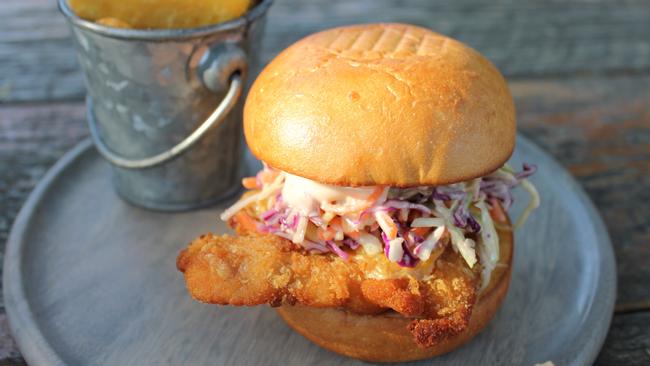Local restaurants suffer as chain operators turn to fast casual
Restaurant ‘groups’ squeeze opposition by placing volume and consistency before high quality and innovation.

Going to Circular Quay for the food — unless you’re on a promise of an afternoon scarfing oysters and Ruinart at the Sydney Cove Oyster Bar — is a bit like going to Times Square for New Year’s Eve. Too many tourists, not enough point. But never fear: even as you read these words, this once-gaping hole in the harbour city’s food scene is being filled through the opening of a multistage, $60 million “dining and lifestyle precinct” whose developer promises (stop me if you’ve heard this before) will satisfy a range of tastebuds on any budget, yada yada yada.
Naturally, there’ll be an outlet of a local Thai mini-chain that already has a handful of outlets around town. Salt Meats Cheese, which started out as a gourmet deli and lately has expanded into the pizza game, will have another wood-fired oven churning out neapolitans faster than you can say: “Do we really need to eat this with a knife and fork?” And of course Neil Perry is plopping another one of his Burger Project outlets into the mix.
So what does all this have to do with the price of snapper at the fish markets? Nothing, except that it’s further evidence of the push to make what is known (shudder) as “fast casual” the new normal, not just in Sydney but in capital cities across Australia, where restaurant “groups” know that the best way to turn a buck is not necessarily through high quality and innovation but volume and consistency.
Feeding off the insatiable desire for unit blocks perched on retail podiums and pushed hard by PRs, you have a recipe for cities with all the charm and dining diversity of an airport concourse — and without the consolations of duty-free shopping or travelators. Thus no one will ever have to be too far away from a $25 bowl of lamb ragu or souvlaki or Swiss schnitzel that’s exactly like the one they can get at the exact same outlet across town. For all the pretence about theme and concept, this stuff is just McDonald’s for the upper-middle-middles who’d never be caught dead at Macca’s except maybe on a renovation Sunday when there was too long a line at the hardware barn’s sausage sizzle. Everyone knows what they’re getting, they don’t need to think too hard, it’s “affordable” and, of course, “accessible”.
And while there is a libertarian case that says, well, this is what the people want, so why begrudge restaurant groups from providing it to them, it is also true that in food — as in so much else — bad money chases out good.
This is particularly the case in a place like Sydney, where the deck is already stacked against independent chefs and owners; ridiculous rents, regulations and complying with and paying complex and costly penalty rates tilt the balance in favour of those juggernauts that can handle the compliance and regulation and negotiation required by landlords and governments alike.
Master Restaurant in Surry Hills recently shut its doors, blaming the City of Sydney for not approving a change to its conditions to allow diners to stay past the absurdly early bedtime of 10pm. And who can forget the brouhaha earlier this year when the cops questioned wine bar 10 William Street over its wine list, barbaresco by the glass being the ruin of society?
But if the unlevel playing field is driving supply one way, there’s no reason the demand side cannot send some countersignals to even things up. Hell, elevate it to a social media campaign and give it its own hashtag (#i’lldinewithyou, perhaps?). More effectively, we could all let our dollars do the walking and patronise, if even initially just for a month, the independent and the small making a go of it. To horrify the spirit of Karl Marx by paraphrasing him in this bourgeois campaign, perhaps the slogan can be Diners of Australia, unite! You have nothing to lose but your (restaurant) chains!

